Are You at Risk for Caregiver Burnout? Protect Yourself

Recognizing the Signs and Prioritizing Your Well-being
Caregiving is a profound act of love and dedication, often undertaken by family members here in New Jersey. Whether you’re an adult child assisting an aging parent in Bergen County, a spouse caring for a partner with chronic illness in Mercer County, or a guardian supporting an adult with disabilities, your commitment shapes daily lives. However, the demands of caregiving can be immense, leading to a state known as caregiver burnout. This isn’t a sign of weakness; it’s a natural response to prolonged stress, lack of support, and the emotional and physical toll of constant responsibility. Understanding the risks and symptoms is the first step toward protecting your own health and ensuring you can continue providing the best care possible.
As a leading New Jersey home-care agency, we frequently witness the dedication of family caregivers. Our goal is to empower you with knowledge and resources, ensuring your well-being remains a priority. Let’s explore how to identify if you’re at risk and practical strategies to safeguard your health and resilience.
Understanding Caregiver Burnout: More Than Just Feeling Tired
Caregiver burnout is a state of physical, emotional, and mental exhaustion. It extends beyond typical fatigue, leading to feelings of apathy, hopelessness, and even resentment. It can affect anyone in a caregiving role, regardless of their love for the care recipient. The persistent stress depletes energy reserves, making it challenging to manage daily tasks, let alone maintain personal well-being.
A 2023 AARP survey on caregiving in New Jersey highlighted that many family caregivers spend an average of 24 hours per week providing care, with a significant percentage doing so for 40 hours or more. This substantial time commitment, often alongside other responsibilities like employment or raising children, underscores the potential for burnout among our state’s dedicated caregivers. Data from AARP consistently illustrates the heavy lifting done by family caregivers nationwide, with New Jersey mirroring these trends.
Common Symptoms of Caregiver Burnout
Identifying burnout begins with recognizing its varied symptoms. These signs can manifest in physical, emotional, and social ways. Pay attention to persistent changes in your mood, energy levels, and overall health.
- Physical Exhaustion: Feeling constantly tired, even after sleeping. Frequent headaches, muscle aches, or digestive problems. Neglecting personal hygiene or regular medical check-ups.
- Emotional Drain: Feeling overwhelmed, helpless, or hopeless. Experiencing irritability, anxiety, or depression. Losing interest in activities you once enjoyed. Feeling detached or numb.
- Social Withdrawal: Isolating yourself from friends and family. Neglecting social engagements. Losing interest in hobbies or activities outside of caregiving.
- Cognitive Impairment: Difficulty concentrating, memory problems, or making decisions. Feeling confused or disorganized.
- Increased Resentment: Feeling resentful towards the care recipient, other family members who don’t help, or even yourself.
- Sleep Disturbances: Insomnia, restless sleep, or sleeping too much.
- Changes in Appetite: Significant weight gain or loss.
- Frequent Illness: A weakened immune system leading to more colds or infections.
Who Is Most at Risk?
While anyone can experience caregiver burnout, certain factors can increase your susceptibility. These often relate to the intensity of care required, the duration of caregiving, and the level of available support.
- Lack of Support System: Caregivers who feel isolated or have limited help from family, friends, or community resources are at higher risk. Many family caregivers in New Jersey often find themselves shouldering the bulk of responsibilities alone.
- High-Demand Caregiving: Providing care for individuals with complex medical needs, cognitive impairments like Alzheimer’s or dementia, or those requiring 24/7 supervision can accelerate burnout.
- Caregiver’s Own Health Issues: If the caregiver themselves has pre-existing health conditions, the added stress of caregiving can exacerbate these problems.
- Financial Strain: Caregiving can be financially draining, especially if it requires reducing work hours or paying for supplies and services. Financial stress adds another layer to burnout risk.
- Unrealistic Expectations: Believing you must do everything yourself or expecting perfect outcomes can lead to frustration and exhaustion.
- Caring for a Spouse: Spousal caregivers, often seniors themselves, may face unique challenges, including their own declining health or a deep emotional connection that makes setting boundaries more challenging.
The Impact of Unaddressed Burnout
Ignoring the signs of caregiver burnout has serious implications, not only for the caregiver but also for the person receiving care. A burned-out caregiver is less effective, more prone to mistakes, and may find their patience wearing thin. This can lead to a decline in the quality of care provided, and in extreme cases, even pose a risk to the care recipient’s safety. For the caregiver, prolonged burnout can lead to serious health problems, strained relationships, and a significant reduction in their own quality of life. It’s essential to remember that taking care of yourself is not selfish; it’s a necessary component of sustainable caregiving.
Protect Yourself: Strategies for Prevention and Recovery
Proactive steps are essential to mitigate caregiver burnout. Implementing these strategies can help you manage stress, maintain your well-being, and continue providing compassionate care.
Prioritize Self-Care
This is paramount. Think of your own well-being as the foundation upon which your caregiving efforts rest. If the foundation crumbles, so does everything else. Even small, consistent actions can make a substantial difference.
- Adequate Sleep: Aim for 7-9 hours of quality sleep per night. Establish a consistent sleep schedule.
- Healthy Nutrition: Fuel your body with nutritious meals. Avoid relying on fast food or excessive caffeine.
- Regular Exercise: Incorporate physical activity into your routine. A brisk walk around a local park in Monmouth County or simple stretching exercises can significantly reduce stress.
- Hobbies and Relaxation: Set aside time for activities you enjoy, even if it’s just 15 minutes a day. Read a book, listen to music, meditate, or engage in a creative pursuit.
Set Realistic Boundaries and Expectations
It’s vital to acknowledge your limitations. You cannot do everything, and it’s okay to say no to additional responsibilities.
- Delegate Tasks: Identify tasks that others can assist with, whether it’s grocery shopping, paperwork, or even simply spending time with the care recipient.
- Learn to Say No: Politely decline requests that would overextend you. Your capacity is not infinite.
- Manage Expectations: Accept that you cannot control everything. Focus on what you can realistically achieve and let go of the need for perfection.
Seek and Accept Support
You don’t have to navigate this journey alone. There are numerous resources and individuals willing to help. Connecting with others who understand your situation can provide immense comfort and practical advice.
- Family and Friends: Communicate your needs clearly to loved ones. They may want to help but not know how.
- Caregiver Support Groups: Joining a local support group, perhaps through a senior center in Essex County or an online community, allows you to share experiences, gain insights, and feel less isolated. The New Jersey Department of Human Services Division of Aging Services offers a wealth of information on local programs and caregiver support resources.
- Professional Counseling: A therapist or counselor can provide strategies for coping with stress, grief, and emotional challenges.
Explore Respite Care Options
Respite care provides temporary relief for primary caregivers. It’s a critical component of burnout prevention, allowing you to rest, recharge, and attend to your own needs without guilt. This type of care is particularly beneficial for New Jersey families seeking to maintain their loved one at home while ensuring the caregiver’s well-being.
- In-Home Respite Care: A professional caregiver comes to your home to care for your loved one, allowing you to leave the house for a few hours or even a full day. This maintains familiarity and comfort for the care recipient.
- Adult Day Programs: These centers offer supervised activities and care during the day, providing social interaction for your loved one and a structured break for you. Many towns across New Jersey, from Sussex County to Cape May, offer such programs.
- Short-Term Residential Stays: Some assisted living facilities or nursing homes offer short-term stays, ideal for longer breaks or vacations.
Utilizing respite services is an investment in your long-term capacity to care. It prevents the complete exhaustion that can lead to irreversible burnout, ensuring a healthier dynamic for everyone involved. Our agency specializes in providing compassionate in-home respite care throughout New Jersey, offering qualified professionals who can seamlessly step in to support your family.
Educate Yourself
Understanding the condition of the person you are caring for can empower you. Knowledge about the progression of illnesses like dementia or Parkinson’s can help you anticipate challenges and develop effective coping mechanisms. Attending workshops or reading reliable resources can reduce uncertainty and stress.
Take the First Step Towards Protecting Yourself
Recognizing the risk of caregiver burnout is a sign of strength, not weakness. Your well-being is fundamental to your capacity to provide quality care. By actively prioritizing self-care, seeking support, and exploring options like professional respite care, you can mitigate the challenges of caregiving and maintain your own health and happiness.
If you or someone you know in New Jersey is experiencing signs of caregiver burnout, remember that help is available. Don’t wait until you reach a breaking point. Reach out to local New Jersey caregiver resources, discuss your options with family, or contact a trusted home-care agency like ours to explore how professional support can provide the relief you need and deserve. Protecting yourself allows you to continue giving your best.



